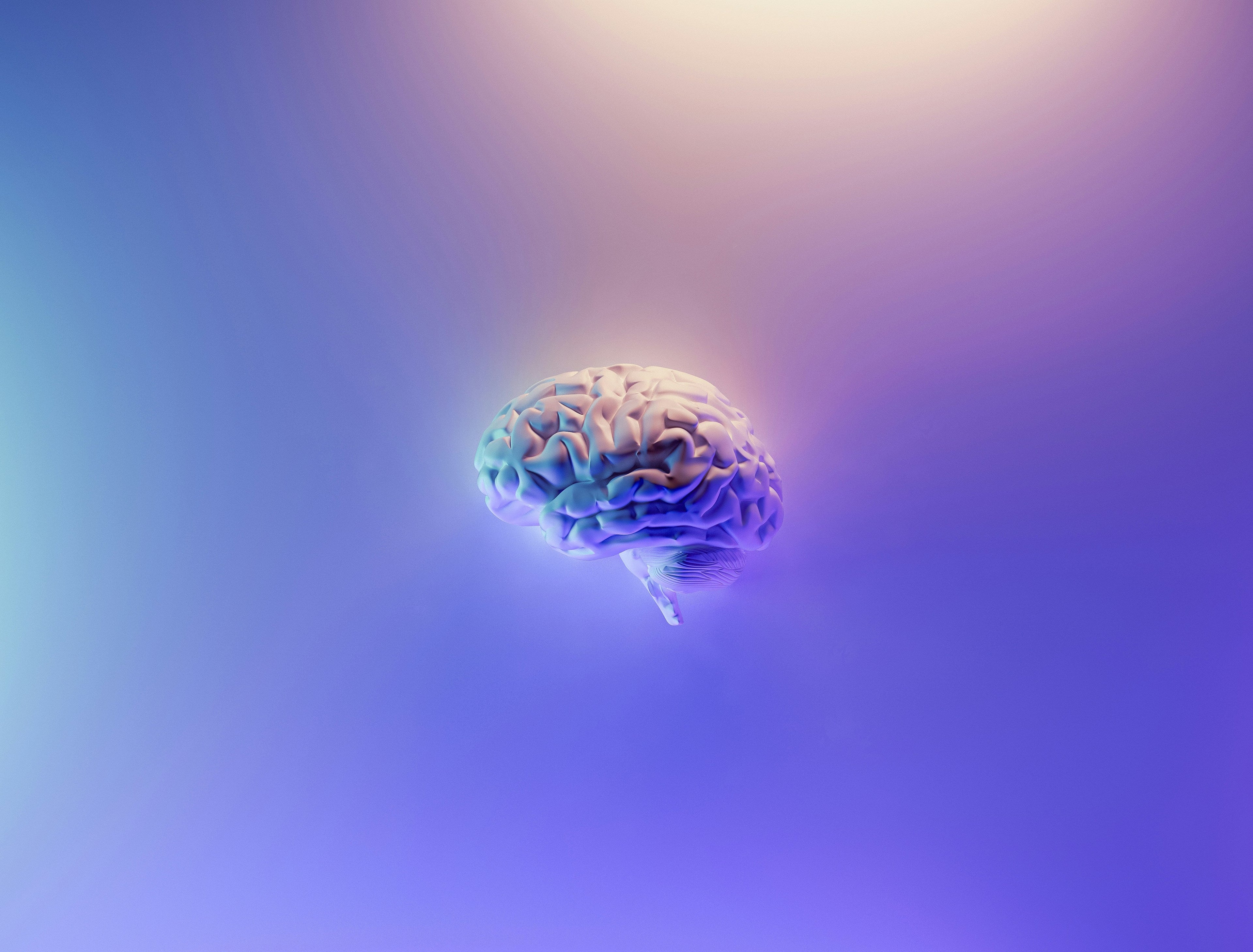Jump to:
Brain Development in the First 1000 Days
The first 1000 days of life - from conception to a child's second birthday - represent the most critical period for brain development in the entire human lifespan. During this window, the brain grows more rapidly than at any other time, laying the foundation for all future learning, behavior, and health.
Understanding what happens during these crucial 1000 days can transform how we think about pregnancy nutrition, infant feeding, and early childhood development. Let's dive into the science behind this remarkable process.
The Numbers That Will Blow Your Mind
Before we explore the mechanisms, let's establish just how extraordinary brain development is during this period:
- At birth: Your baby's brain is about 25% of its adult weight
- By age 1: It reaches 60% of adult weight
- By age 2: It's already 80% of adult size
- Neural connections: Form at a rate of 1,000 per second during the first three years
- Total neurons: A newborn has approximately 100 billion neurons - roughly the same as adults, but with far fewer connections
To put this in perspective: if brain development happened this rapidly at any other time in life, an adult brain would grow from 3 pounds to 12 pounds in just two years.
The Three Critical Phases
Phase 1: Conception to Birth (Days 1-280)
The Foundation Period
This is when the basic architecture of the brain is established. Key developments include:
Neurulation (Weeks 3-4):
- The neural tube forms, which becomes the brain and spinal cord
- Folic acid is crucial during this period to prevent neural tube defects
- This happens before many women even know they're pregnant
Neurogenesis (Weeks 5-20):
- Massive production of neurons occurs
- The brain produces 250,000 neurons per minute at peak production
- By birth, most neurons a person will ever have are already present
Migration and Differentiation (Weeks 12-24):
- Neurons migrate to their designated locations
- Cells begin specializing for specific functions
- Basic brain structures form
Critical Nutrients During Pregnancy:
- DHA: Essential for neuron membrane formation and brain tissue development
- Choline: Supports memory center development
- Iron: Crucial for oxygen transport to developing brain tissue
- Folate: Prevents neural tube defects and supports DNA synthesis
Phase 2: Birth to 12 Months (Days 281-645)
The Connection Explosion
This is when the brain's wiring system develops at breakneck speed:
Synaptogenesis:
- Neural connections form at an astounding rate
- Peak connection formation: 1,000-1,500 new synapses per second
- By 12 months, synapses are overproduced by about 50%
Myelination Begins:
- Myelin sheaths start forming around nerve fibers
- This "insulation" speeds up signal transmission
- Process continues into the teenage years but accelerates during first year
Critical Period for:
- Vision and hearing development
- Language acquisition begins
- Motor skill foundations
- Emotional regulation systems
Critical Nutrients During Infancy:
- DHA: Continues to be crucial, especially if breastfeeding
- Iron: Deficiency during this period can cause irreversible cognitive delays
- Zinc: Supports neurotransmitter function
- Protein: Provides building blocks for neurotransmitters
Phase 3: 12-24 Months (Days 646-1000)
The Pruning and Strengthening Phase
During this period, the brain becomes more efficient:
Synaptic Pruning:
- Unused neural connections are eliminated
- "Use it or lose it" principle applies
- Brain becomes more specialized and efficient
Continued Myelination:
- Speeds up signal transmission
- Improves coordination and cognitive processing
- Language areas show particular development
Higher-Order Functions Emerge:
- Working memory develops
- Planning and problem-solving abilities appear
- Self-control mechanisms begin forming
The DHA Connection: Why This Fatty Acid is Non-Negotiable
Of all the nutrients crucial for brain development, DHA (docosahexaenoic acid) stands out as uniquely important:
The Science Behind DHA and Brain Development:
Structural Component:
- DHA makes up 30-40% of polyunsaturated fatty acids in the brain
- Highly concentrated in areas responsible for learning and memory
- Essential component of neuron cell membranes
Functional Benefits:
- Improves membrane fluidity: Allows for better communication between neurons
- Supports myelination: Helps form the protective sheaths around nerve fibers
- Enhances neuroplasticity: The brain's ability to form new connections
- Influences neurotransmitter function: Affects mood, attention, and learning
Research Findings: Studies consistently show that adequate DHA during the first 1000 days is associated with:
- Higher IQ scores in childhood
- Better visual acuity
- Improved attention and focus
- Reduced risk of behavioral problems
- Enhanced language development
DHA Requirements During the First 1000 Days:
During Pregnancy:
- Recommended intake: 300-600mg daily
- Fetal brain accumulates DHA rapidly, especially in third trimester
- Maternal stores become depleted without adequate intake
During Breastfeeding:
- DHA passes through breast milk to baby
- Maternal intake directly affects baby's DHA levels
- Continued supplementation recommended
During Infancy (if not breastfeeding or as complementary):
- Formula should contain DHA
- Introduction of DHA-rich foods when appropriate
- Consider supplementation under healthcare provider guidance
What Happens When Nutrition is Inadequate?
The consequences of poor nutrition during the first 1000 days can be profound and long-lasting:
Iron Deficiency:
- Can cause irreversible cognitive delays
- Affects attention, memory, and learning ability
- Most common nutritional deficiency worldwide
DHA Deficiency:
- Associated with attention problems
- May contribute to behavioral issues
- Can affect visual and cognitive development
Protein-Energy Malnutrition:
- Stunts brain growth
- Reduces neuron number and size
- Affects neurotransmitter production
The Critical Window Concept:
Many aspects of brain development have "critical periods" - windows when specific development must occur, or the opportunity is lost forever. This is why the first 1000 days are so crucial.
Environmental Factors That Matter
Nutrition isn't the only factor affecting brain development during this critical period:
Positive Influences:
- Responsive caregiving: Builds secure attachment and emotional regulation
- Rich language exposure: Supports language development and cognitive growth
- Safe, stimulating environment: Promotes healthy brain architecture
- Adequate sleep: Essential for memory consolidation and brain development
Negative Influences:
- Chronic stress: Can impair brain development and learning
- Toxin exposure: Lead, mercury, and other toxins can damage developing brains
- Neglect or trauma: Can alter brain structure and function
- Inconsistent care: May affect attachment and emotional development
The Intergenerational Impact
Here's something remarkable: the effects of nutrition during the first 1000 days can influence not just that child, but potentially their children and grandchildren through epigenetic mechanisms.
Epigenetic Programming:
- Nutritional experiences can alter gene expression
- These changes can be passed to future generations
- Particularly relevant for metabolic and cognitive health
Practical Implications for Parents
Understanding the science of the first 1000 days should inform several key decisions:
During Pregnancy:
- Prioritize DHA supplementation with high-quality, algae-based sources
- Ensure adequate folate before conception and during pregnancy
- Address iron deficiency early and maintain adequate levels
- Consider choline supplementation for memory development support
During Infancy:
- Breastfeed if possible and continue DHA supplementation while nursing
- Monitor iron levels and address deficiency promptly
- Introduce nutrient-dense foods when ready for solids
- Consider pediatrician-approved supplementation if needed
Throughout the First 1000 Days:
- Create a responsive, nurturing environment
- Minimize exposure to toxins and stress
- Provide rich language and sensory experiences
- Prioritize sleep for both parent and child
The Investment Perspective
Research shows that investments in nutrition and care during the first 1000 days provide the highest return of any intervention in human development:
- Economic returns: Every dollar invested in early childhood nutrition returns $7-17 in economic benefits
- Health outcomes: Better nutrition in early life reduces chronic disease risk throughout life
- Educational achievement: Children with better early nutrition perform better in school
- Social outcomes: Early nutrition influences social skills and emotional regulation
Looking Forward: What This Means for Your Family
The science is clear: the first 1000 days represent a unique window of opportunity that will never come again. The brain development that occurs during this period sets the stage for every aspect of your child's future - their ability to learn, their emotional resilience, their physical health, and their potential for success.
This doesn't mean perfection is required. Brains are remarkably resilient, and good nutrition during this period doesn't guarantee outcomes any more than poor nutrition guarantees problems. But understanding these critical windows allows us to make informed decisions that tip the odds in our children's favor.
The key is focusing on what we can control: providing the building blocks for optimal brain development through thoughtful nutrition, creating nurturing environments, and understanding that the investment we make in these first 1000 days will pay dividends for a lifetime.
Want to ensure your child gets the brain-building nutrition they need during these crucial 1000 days? Our NeuroNatal DHA is specifically formulated to support optimal brain development from pregnancy through early childhood. Join our waitlist for early access to this game-changing supplement.






